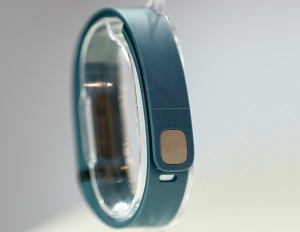Demand for seamless connection to the Internet of Things will drive wearable shipments to double by 2020, says a new Frost & Sullivan report prepared in collaboration with GITEX Technology Week.
Wearables are computing devices that can be worn as clothing or accessories – including smart watches, glasses, bands, cameras, and clothing. By recording, analysing, and communicating data, wearables can provide real-time contextual information to aid in decision-making and enhancing experiences.
Use cases include constant health and fitness updates, real-time transport tracking, and augmented reality enhancing construction sites and factory floors in manufacturing.
Thanks in part to growing GCC demand for wearables, the global shipments of wearables will grow from about 90 million in 2016 to over 200 million in 2020, according to the report.
“Smart wearables will rapidly advance in technology to replace smartphones by 2020, and provide a gateway for seamless citizen interaction with the Internet of Things and Smart Cities,” said Robert Scoble, a Silicon Valley insider speaking at GITEX Technology Week 2016.
Robert Scoble, who currently serves as Entrepreneur in Residence at augmented reality and virtual reality startup Upload VR, will be one of dozens of speakers at the GITEX Conference, and a headliner of GITEX Digital Marketing Monday on digital marketing innovations.
“The GCC, with its advancing Smart Cities, is well-positioned to be among global leaders in demonstrating how wearables can be optimised for hyper-connectivity. Smart wearables can deliver an enhanced experience that was only in the realm of sci-fi films, especially in verticals such as healthcare, transportation, marketing, and retail,” added Robert Scoble.
GITEX speakers addressing wearables will include Rafael Grossmann, the first surgeon to live-stream surgery with Google Glass, Shahid Azim, Co-Founder of medical wearables startup Quanttus, and Jonathan Reichental, CIO of Palo Alto, on the future of Smart Cities.
Smart Watches Dominate Wearables Growth
Globally, smart device manufacturers are looking to cash in on the smart wearables trend. Currently, the market is dominated by smart wristbands, at 51 per cent, and smart watches, at 41 per cent, but will become more diversified by 2020, according to research firm IDC.
Smart watches will dominate, accounting for more than 50 per cent of wearable shipments by 2020. Shipments of smart watches will grow by 69 per cent annually to 2020, with revenue accelerating faster than sales at 78 per cent annually, according to Frost & Sullivan.
Smart bands will remain a specialised market. Smart cameras, glasses, and clothing will see specialised growth – for example in athletics, or jobs in high-risk environments – before becoming more consumer friendly. Smart glasses will gain market traction in the next two to three years, with sales accelerating rapidly towards 2020, according to Frost & Sullivan.
While Apple has staked an early market lead in smart wearables, major technology brands such as Garmin, LG Electronics, Lenovo, and Samsung have seen double-digit shipment growth year-over-year, with strong potential in niche wearables, according to IDC analysis.
“The growing Samsung device ecosystem is one based on seamless connectivity and interoperability. Our smartwatches, including the recently-announced Gear S3, not only compliment this universe but adds an additional layer of functionality and mobility,” Mohammed Gharaibeh, Head of B2B for Information and Mobility at Samsung Gulf Electronics.
“As a fashion statement, activity tracker, personal assistant, music player and navigator, our smartwatches are transcending conventional confines of what a watch should be,” added Mohammed Gharaibeh.
GCC Set for Strong Wearables Growth
The Middle East is a growing market for wearable manufacturers and distributors, thanks to high mobile penetration in the GCC region, according to the Frost & Sullivan report.
“Dubai aims to be one of the world’s smartest cities, and wearable innovators will look to the city for how wearables can fully realise the potential of the Internet of Things. GITEX will be a showcase for how seamless connectivity can transform daily lives – across mobile operators, wearable developers, and startups,” said Trixie LohMirmand, Senior Vice-President, Exhibitions and Events Management, Dubai World Trade Centre.
Wearables will be in the spotlight at GITEX Tech Watch, showcasing the latest innovative and immersive technology. Global entrepreneurs in the wearables sector can seek funding and partnerships at the GITEX Startups Movement, which aims to be the world’s most global startup event in 2016. One of the leading wearable startups participating is Mosaikx, a UAE-based company that has launched the world’s first wearable smart voice recorder.
Aiming to boost the reach of startups will be accelerators and incubators such as Oasis500 from Jordan, the BADIR Programme for Science and Technology and InspireU by STC from the Kingdom of Saudi Arabia, and the Skolkovo Foundation from Russia, the Dubai Technology Entrepreneurship Centre, and the Japan External Trade Organisation.


 Global wearable shipments to double by 2020, says new report
Global wearable shipments to double by 2020, says new report